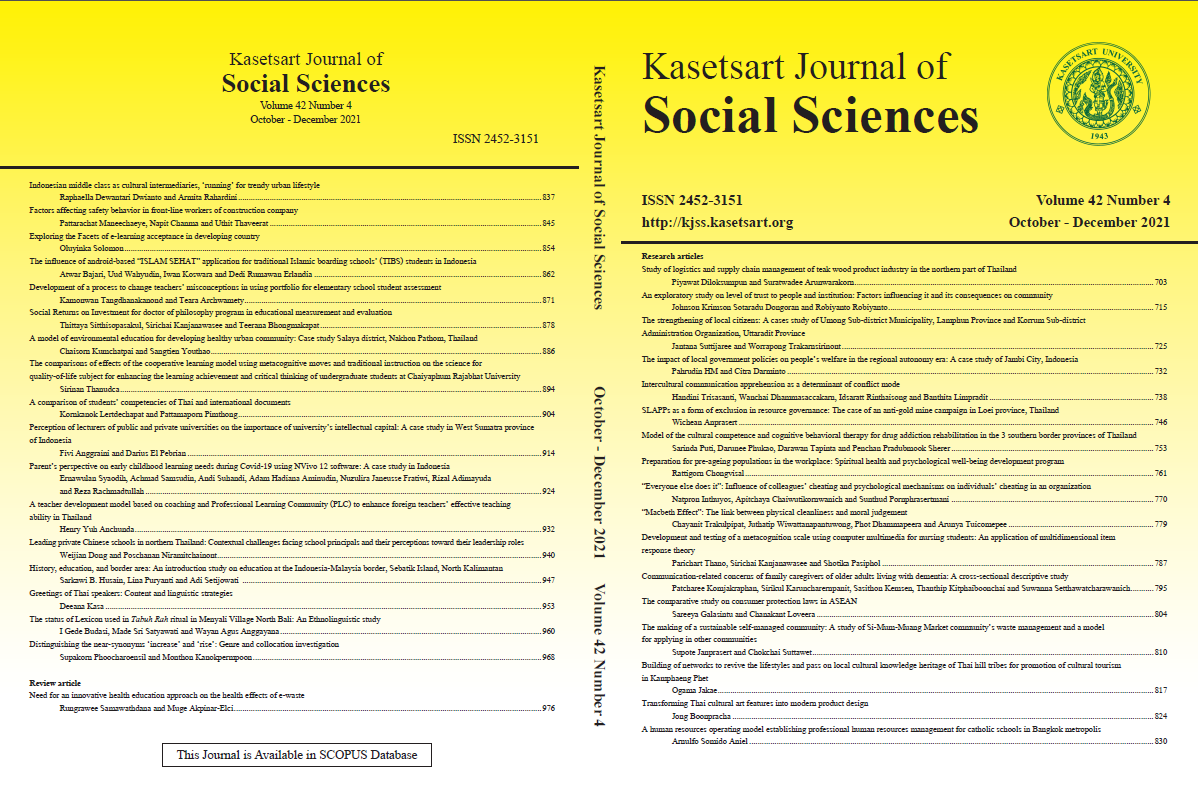SLAPPs as a form of exclusion in resource governance: The case of an anti-gold mine campaign in Loei province, Thailand
Keywords:
exclusion, gold mine, Loei, resource governance, SLAPPAbstract
The article demonstrates the anti-gold mine movement in Thailand’s northeastern province of Loei as a form of resource governance and the corporate’s SLAPPs as a tool to exclude the community from such process. The study applied concepts in resource governance, SLAPPs, and exclusion in a qualitative analysis of interviews, participant observations, and documentary research. The findings show that neoliberal resource governance has led to conflicting access to resources among the state, capitalists, and communities. This conflict is based on different forms of legitimacy in accessing resources. That is, the state and capitalists use the market to drive the management of mine-related resources claiming the development discourse. But this management has affected the ecological system, food, and health of the local communities. The communities thus used laws to legitimize their role in resource governanace through the antimine movement, which obstructed the mine company’s access to the resources by means of regulation, force, and legitimation. The company, on the other hand, exploited the chilling effect resulting from SLAPP cases. These cases later became a commodity with which negotiation over access to the resources was possible as well as a tool for the exclusion of community members from accessing the resource governance.
Downloads
Published
How to Cite
Issue
Section
License

This work is licensed under a Creative Commons Attribution-NonCommercial-NoDerivatives 4.0 International License.
This is an open access article under the CC BY-NC-ND license http://creativecommons.org/licenses/by-nc-nd/4.0/










